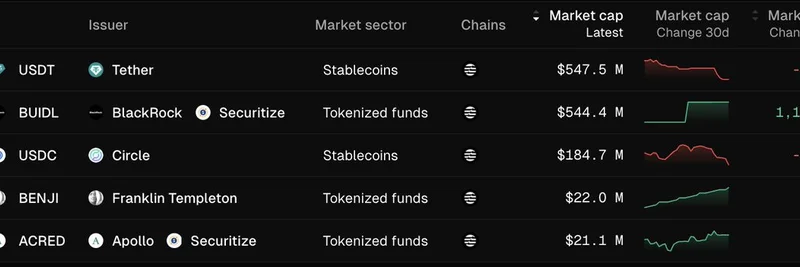In the ever-evolving world of blockchain and crypto, real-world assets (RWAs) are gaining traction as a way to bring traditional finance onto the chain. But not all tokenization methods are created equal. A recent clip from The Rollup podcast, shared by @kkocality on X, highlights a critical flaw in wrapped RWAs and proposes a game-changing solution.
For those new to the term, RWAs refer to real-world assets like real estate, stocks, or commodities that are tokenized on the blockchain. This allows them to be traded, fractionalized, and integrated into decentralized finance (DeFi) ecosystems. Wrapped RWAs are essentially tokenized versions where the asset is "wrapped" in a smart contract, often relying on oracles—third-party data feeds—to track the underlying value.
The problem? As pointed out in the tweet: "Wrapped RWAs fail where claims stop. Wrappers are just price feeds; when oracles get gamed there’s no recourse." In simple terms, if someone manipulates the oracle providing the price data, the wrapped token's value can be distorted, leaving holders without a way to claim the actual asset. It's like holding a stock certificate that's based on a faulty ticker—when things go wrong, you're stuck.
The fix, according to the discussion, is "tokens with direct claims and enforceable redemption." This means creating tokens that give holders a legal or on-chain right to redeem the underlying asset directly, bypassing fragile oracle dependencies. Whoever can scale this approach effectively could dominate the RWA market, making tokenization more secure and appealing to institutional players.
The clip features Graham Ferguson (@grahamfergs), Head of Ecosystem at Securitize, chatting with hosts @ayyyeandy and @robbie_rollup on The Rollup. Securitize is a leading platform for tokenizing securities, so Ferguson's insights carry weight in the space.
Key Takeaways from the Discussion
- Oracle Vulnerabilities: Oracles can be a single point of failure. Gaming them—through exploits or manipulation—has happened in DeFi before, leading to massive losses.
- Direct Claims Advantage: By embedding enforceable rights into the token itself, holders gain real recourse. This could involve legal frameworks or smart contract mechanisms that ensure redemption.
- Scaling the Solution: The race is on to implement this at scale. Projects that combine blockchain tech with regulatory compliance might lead the way.
This insight is particularly relevant for meme token enthusiasts and blockchain builders. While meme coins often thrive on hype and community, understanding robust tokenization can inspire more sustainable models. Imagine meme tokens backed by real claims—blending fun with fundamentals.
If you're diving into RWAs, check out the full podcast episode on The Rollup for deeper dives. And follow @kkocality for more modular blockchain takes, including their work with Celestia and Celestine Sloths.
For the visual, here's a snapshot from the clip:
Stay tuned to Meme Insider for more updates on how emerging tech like this shapes the meme token landscape and beyond.

